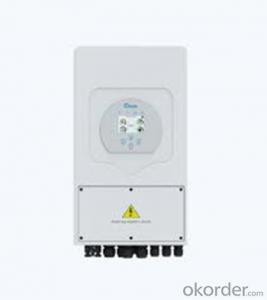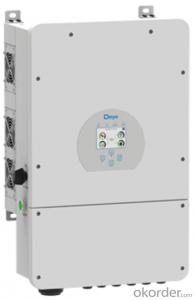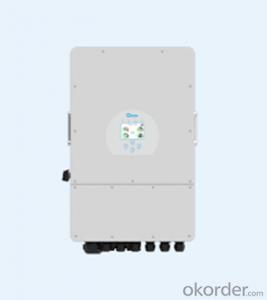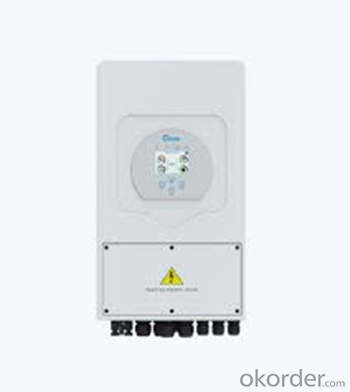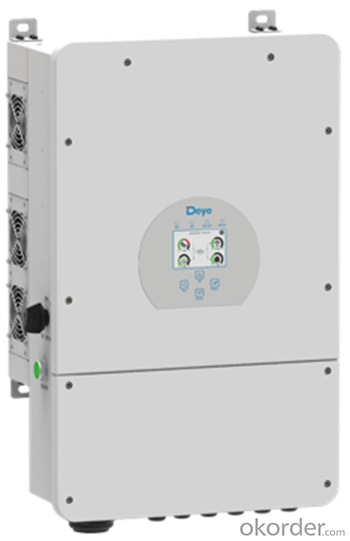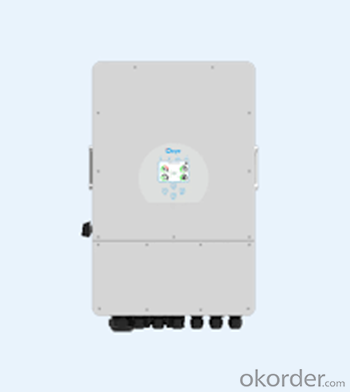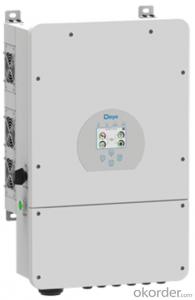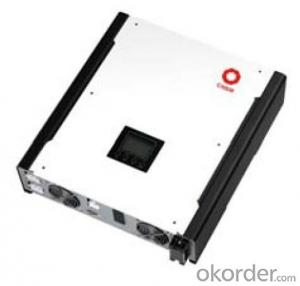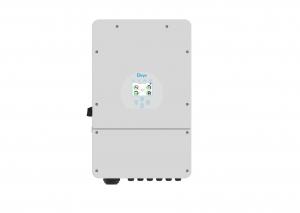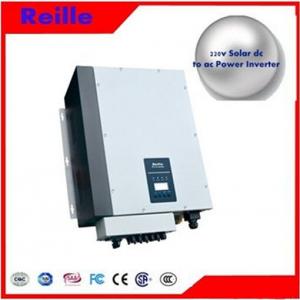BP Solar Inverter - Deye Factory Price 48V 12KW Hybrid Solar Inverter with UL Certificates
- Loading Port:
- Stock in Panama
- Payment Terms:
- TT OR LC
- Min Order Qty:
- 10 pc
- Supply Capability:
- 5000 pc/month
OKorder Service Pledge
OKorder Financial Service
You Might Also Like
Specification
Specification
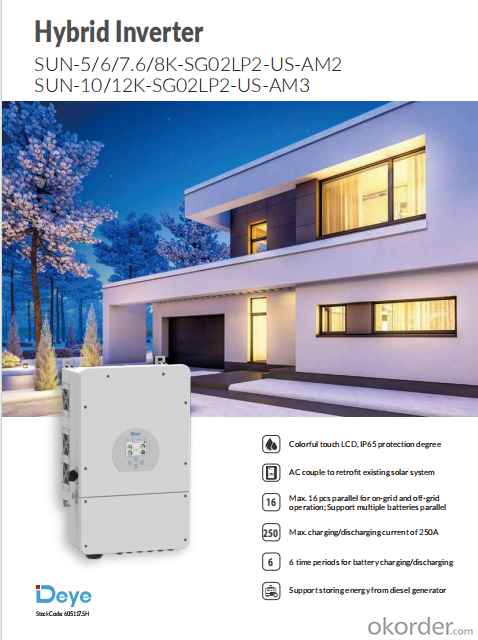
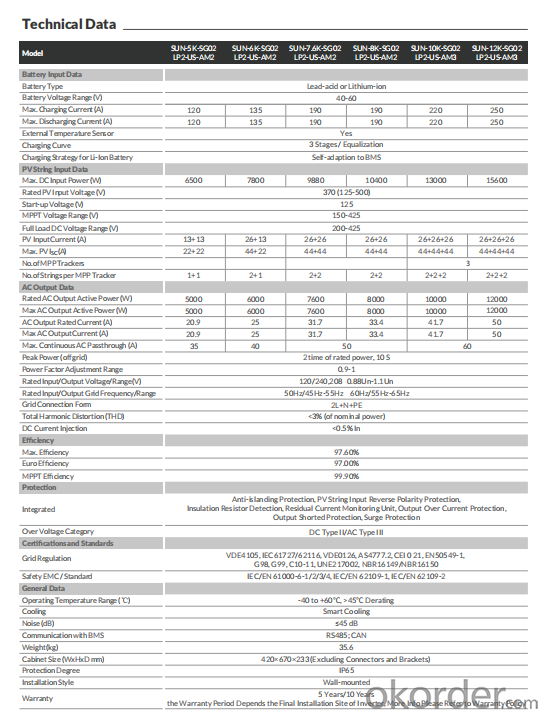
Company presentation
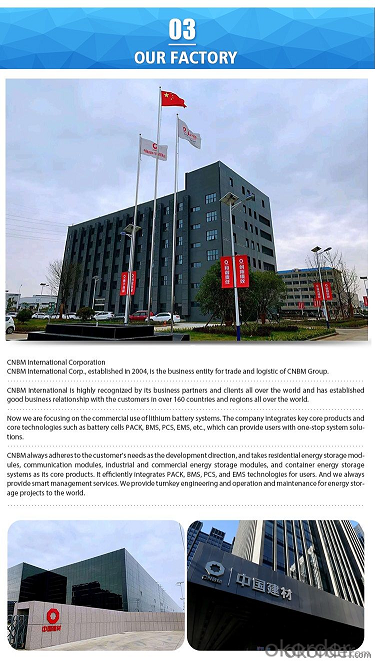
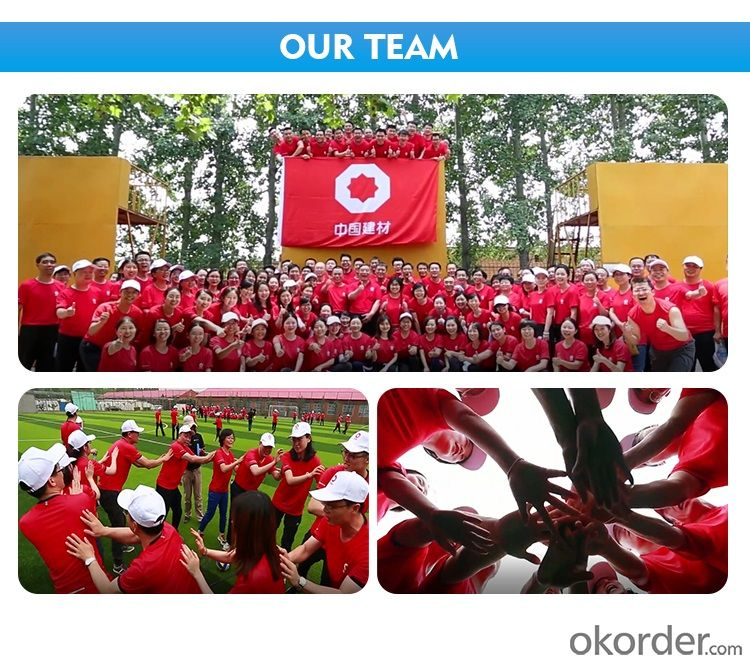
RFQ
Q: Do you have CE?A: Yes, our products are approved by CE.Q: Is OEM &ODM available in your factory ?A: Yes, you just offer us necessary documents and then we will produce the products as your requirements.Q: What is your Packing details?A: 1.Wooden case or carton package,standard export packages2.All of the productions are inspected carefully by QC before delivery.Q: What is your Delivery time?A: Usually, we make merchandise inventory. If we have the products in stock, the delivery time is 5-10 days after receiving the deposit; If we don’t have the products in stock, we will arrange the production right now. The delivery time will be 10-30 days. It depends on the quantity of order.Q:Why choose us?A: 1. Ready To Ship 2. Sample Available 3. One-Stop Service 4. Online customization5. Many years' experiences of manufacturing and service available in 24hours
- Q: How do you calculate the power output of a solar inverter?
- To calculate the power output of a solar inverter, you need to multiply the input voltage by the input current. This will give you the input power. Then, multiply the efficiency of the inverter by the input power to get the output power.
- Q: What is the role of a power factor correction circuit in a solar inverter?
- The role of a power factor correction circuit in a solar inverter is to improve the power factor of the inverter, ensuring that the power drawn from the grid is used efficiently. By reducing the reactive power and bringing it closer to the real power, the power factor correction circuit helps minimize energy losses and optimize the overall performance of the solar inverter.
- Q: How does a solar inverter handle voltage and frequency variations caused by sudden load changes?
- A solar inverter is designed to handle voltage and frequency variations caused by sudden load changes in an efficient and reliable manner. When sudden load changes occur, the solar inverter employs various control mechanisms to regulate and stabilize the voltage and frequency output. Firstly, the inverter continuously monitors the voltage and frequency of the incoming solar power. If there are any variations due to sudden load changes, the inverter adjusts its internal control systems accordingly. It uses advanced power electronics and control algorithms to maintain the voltage and frequency within the desired range. To handle voltage variations caused by sudden load changes, the solar inverter employs a technique called voltage regulation. It automatically adjusts the output voltage by either boosting or reducing it as needed. This ensures that the inverter provides a stable and consistent voltage supply to the load, preventing any damage or malfunction. Similarly, to handle frequency variations caused by sudden load changes, the solar inverter employs a technique called frequency regulation. It adjusts the output frequency to match the grid frequency or the specified frequency requirements. By maintaining the desired frequency, the inverter ensures compatibility and synchronization with the grid or other connected devices. In addition to voltage and frequency regulation, solar inverters also have protective features to handle sudden load changes. They have built-in overload protection mechanisms that can detect excessive loads and prevent any damage to the inverter or the connected devices. These protective features can include overcurrent protection, short-circuit protection, and temperature monitoring. Overall, a solar inverter is designed to handle voltage and frequency variations caused by sudden load changes through its voltage and frequency regulation capabilities, as well as its protective features. These technologies ensure stable and reliable operation, allowing the inverter to efficiently adapt to changing load conditions while maintaining the integrity of the power supply.
- Q: Can a solar inverter work without sunlight?
- No, a solar inverter cannot work without sunlight as it relies on solar energy to convert the direct current (DC) produced by solar panels into alternating current (AC) for use in homes and businesses.
- Q: How does a solar inverter handle variations in solar panel cleanliness?
- A solar inverter is not directly responsible for handling variations in solar panel cleanliness. However, a clean solar panel allows for maximum absorption of sunlight, resulting in optimal energy production. If solar panels are dirty, the amount of sunlight absorbed decreases, leading to reduced energy generation. It is the responsibility of the solar panel owner to regularly clean and maintain the panels to ensure their efficiency.
- Q: What is the importance of voltage and frequency control in a solar inverter?
- The importance of voltage and frequency control in a solar inverter is crucial for maintaining the stability and reliability of the power output. By regulating the voltage and frequency levels, the inverter ensures that the electricity generated from the solar panels is in sync with the grid requirements. This control is necessary to prevent damage to electrical appliances and equipment, maintain grid stability, and enable seamless integration of solar energy into the existing power system.
- Q: Can a solar inverter be used with solar-powered remote sensing systems?
- Yes, a solar inverter can be used with solar-powered remote sensing systems. A solar inverter is responsible for converting the direct current (DC) generated by solar panels into alternating current (AC) that can be used to power various devices and systems. In the case of solar-powered remote sensing systems, the solar inverter would be an essential component in converting the DC power from the solar panels into the required AC power to operate the remote sensing equipment.
- Q: What are the key considerations for selecting a reliable solar inverter manufacturer?
- When selecting a reliable solar inverter manufacturer, there are several key considerations to keep in mind. Firstly, it is important to assess the manufacturer's reputation and track record in the industry. Look for manufacturers with a solid history of producing high-quality and durable inverters. Secondly, evaluate the manufacturer's warranty and after-sales support. A reliable manufacturer should offer a comprehensive warranty that covers both the product and its performance. Additionally, they should have a responsive customer support team that can assist with any inquiries or issues that may arise. Thirdly, consider the efficiency and performance of the inverters offered by the manufacturer. Look for inverters that have high conversion efficiency, which can maximize the solar energy generation and optimize the system's overall performance. Furthermore, it is crucial to assess the manufacturer's compliance with industry standards and certifications. Look for manufacturers that adhere to recognized quality standards and have certifications such as ISO 9001 and IEC 62109. Lastly, consider the manufacturer's financial stability and longevity. A reliable manufacturer should have a strong financial standing and be well-established in the market. This ensures their ability to honor warranties and provide ongoing support. By considering these key factors, you can select a reliable solar inverter manufacturer that offers high-quality products, excellent customer support, and a strong reputation in the industry.
- Q: Can a solar inverter be used in extreme weather conditions?
- Yes, solar inverters are designed to withstand extreme weather conditions. They are typically built with durable materials and undergo rigorous testing to ensure they can operate in extreme temperatures, high humidity, and even harsh weather conditions such as heavy rain or snow. However, it is always recommended to consult the manufacturer's guidelines and take necessary precautions to protect the inverter during extreme weather events.
- Q: How does a solar inverter handle voltage stability in the grid?
- A solar inverter handles voltage stability in the grid by continuously monitoring the voltage levels and adjusting its output accordingly. It ensures that the electricity generated from solar panels is synchronized with the grid voltage, maintaining a stable voltage level. Additionally, advanced solar inverters incorporate features like voltage regulation and reactive power control to further enhance voltage stability in the grid.
Send your message to us
BP Solar Inverter - Deye Factory Price 48V 12KW Hybrid Solar Inverter with UL Certificates
- Loading Port:
- Stock in Panama
- Payment Terms:
- TT OR LC
- Min Order Qty:
- 10 pc
- Supply Capability:
- 5000 pc/month
OKorder Service Pledge
OKorder Financial Service
Similar products
Hot products
Hot Searches
Related keywords
